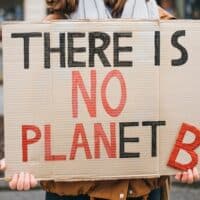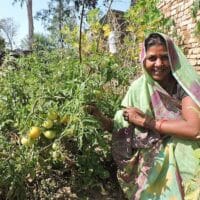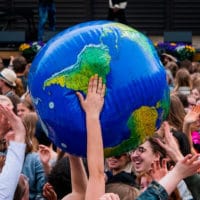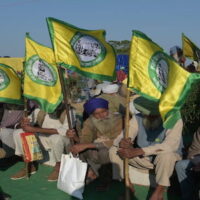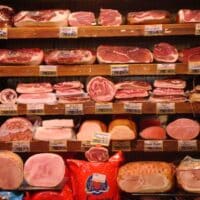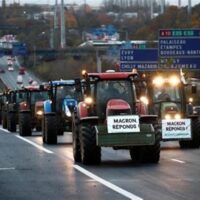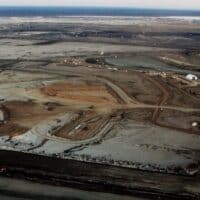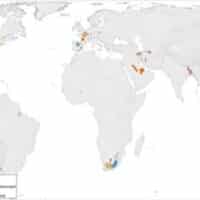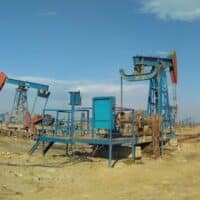-
Marxism and ecology: Does the answer ‘lie in the soil?’
Marx and Engels’ concern with soil provides a focus for understanding the relationship between capitalism and the environment, argues the MARX MEMORIAL LIBRARY.
-
Whether Bird Flu Is on the March Misses the Point
The New England Journal of Medicine reported the case of a Texan farmworker infected with HPAI H5N1. He suffered the hemorrhaging in the eye the cows he tended expressed.
-
On the edge of the ‘climate abyss’
With scientists warning of imminent catastrophe, it is time to stop expecting our rulers to change course by persuasion; only militant anti-capitalism will work, argues John Clarke.
-
Menace on the menu: The financialisation of farmland and the war on food and farming
Between 2008 and 2022, land prices nearly doubled throughout the world and tripled in Central-Eastern Europe.
-
Eco-socialism to fight climate change
With Lima failing to tackle critical issues on global warming, Bolivia outlines socialist project to save the planet.
-
Rural labour in the Modi years
The two phenomena, a reduction in real wages and a reduction in employment opportunities, in fact go together.
-
Canada faces another grim wildfire season
The wildfires in Canada kept burning all winter, and a new season is set to be catastrophic, as climate feedback loops accelerate disaster, warns John Clarke.
-
Forget eco-modernism
Recent years have seen renewed debate on climate strategy on the left. Here, Kai Heron responds to the arguments of the proponents of a left ecomodernism, and argues that it risks reactionary political consequences.
-
Western climate agenda goes against African development
This commentary provides an overview of carbon and biodiversity offsets as an expansion of global capitalism under the western environmental agenda marshalled against development in Africa.
-
Farmers’ protest in India reignites: A struggle for the future of food and agriculture
In 2021, after a year-long protest, India’s farmers brought about the repeal of three farm laws that were intended to ‘liberalize’ the agriculture sector. Now, in 2024, farmers are again protesting. The underlying issues and the facilitation of the neoliberal corporatization of farming that sparked the previous protest remain and have not been resolved.
-
California pistachio billionaires funding Israel’s occupation regime
Based on tax records from Lynda and Stewart Resnicks foundation, they’ve given anywhere from $500,000 to $200,000 to the Israeli military every year, with most of it funneled through an outfit called the American Friends of the Israeli Defense Forces.
-
What’s driving the rise in grocery prices–and what the Government can do about it
Skyrocketing grocery prices in America highlight how precarious our supply chains are, giving corporations ample opportunity to take advantage of consumers in the midst of minor supply shocks and major global crises. Unless we aggressively confront climate change, corporate consolidation, and profiteering, food prices will remain high and continue to climb.
-
Analysis: How do the EU farmer protests relate to climate change?
From Berlin and Paris, to Brussels and Bucharest, European farmers have driven their tractors to the streets in protest over recent weeks.
-
Farmers’ revolt in France
Farmers in France are not a homogenous block, and the left needs to be able to unite with its more progressive elements to generalize revolt, argues John Mullen.
-
Canada’s oilsands are a toxic nightmare
The poisonous waste, and deadly carbon emissions produced by oilsands production is even worse than had been thought, and production must stop, argues John Clarke.
-
Groundwater around the world is rapidly depleting, finds study
Reductions in groundwater can make it harder for people to access freshwater to drink or to irrigate crops and can result in land subsidence.
-
It’s time for a Fossil Fuel Non-Proliferation Treaty
The Paris Agreement did not mention fossil fuels. The COP28 outcome was ridden with loopholes, qualifiers and dangerous distractions.
-
‘Sickening Profits: The Global Food System’s Poisoned Food and Toxic Wealth’
The modern food system is being shaped by the capitalist imperative for profit.
-
The climate charade continues
With fossil-fuel interests now openly and repeatedly in charge of Cop summits, their failure of legitimacy must be confronted, argues John Clarke.
-
Corporate media fed COP 28 carbon capture confusion
The conference, held in Dubai, capital of the oil-dependent United Arab Emirates, reeked of almost comedic irony.



